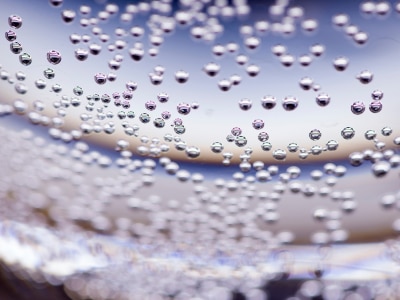Natural Mineral Water vs Spring Water
It’s all clear. It’s all wet. And you can drink them all too. So, what exactly is the difference between natural mineral water and spring water? Well, actually quite a bit. Things like where they come from, their consistency, composition, taste and if they’re protected or treated, all play their part in how water is classified.
Here’s a bit of a rundown of the three main kinds of bottled water that you’re most likely to come across:
What is natural mineral water?
All natural mineral water, comes directly from a named underground source that’s protected from pollution. This source should be named on the bottle.
According to the FDA, for water to constitute as natural mineral water (like BUXTON® Natural Mineral Water) it needs to contain a minimum of 250 parts per million (ppm) of total dissolved solids and also originate from a protected source of underground water.
And like all others, it has to contain consistent mineral composition (calcium, magnesium, potassium and sulphates, to name just a few).
It can’t be chemically treated under any circumstances and the flow of the water must be constant too (luckily ours is naturally pumped up under pressure) so that its purity can be guaranteed.
And if you can’t claim all of that, you can’t claim it’s a mineral water (it’s the law).

What's in mineral water?
Mineral water contains a diversity of natural minerals and trace elements, such as:
- Calcium
- Magnesium
- Potassium
- Sodium
- Bicarbonate
- Sulphate
- Chloride
- SilicaIron
- Zinc
What is spring water?
All spring water comes from a known named underground source, without passing through a community water system.
And it’s also protected within certain set vulnerability perimeters to avoid pollution and contamination, but it can’t be chemically treated.
Whats in spring water?
Spring water also contains a variety of naturally occurring minerals and elements, like:
- Calcium
- Magnesium
- Potassium
- Sodium
Difference between mineral water and spring water
What is in table water?
Sometimes known as ‘table water’ or ‘mountain water’, this kind of water can originate from any type of supply (including municipal water) and can come from multiple sources.
It may also have things added to it, such as additional minerals or treatments. Prepared water is often the standard for emerging countries where purity means above all, safety. Depending on local legislation, it will be called “purified water” or “drinking water” on the label.
Water and hydration
Hydration is so important, and both mineral and spring water can help you stay topped up. It's something we all need to prioritise, even though our individual needs might vary a bit. Staying hydrated is key for lots of things, including supporting your physical and cognitive well being. Choosing the water you enjoy is a great way to make sure you're staying hydrated.
Frequently Asked Questions
Does mineral water or spring water have a longer shelf life?
If stored properly, most bottled water shouldn't expire. However, if you’ve left your water in the open, you may experience a slightly different taste. This is because the water has absorbed carbon dioxide while exposed to the elements. For more info take a look at our tips on storing bottled water.
Which type of water might suit me best ?
Both mineral water and spring water are good options for staying hydrated. The best choice depends on your personal preference. Some people prefer the taste of mineral water due to its mineral content, while others prefer the lighter taste of spring water.
Can I drink mineral water every day?
Yes, mineral water can generally be consumed daily as part of a balanced diet and healthy lifestyle. However, it's always a good idea to listen to your body and consult with a healthcare professional if you have any specific concerns.
What about the environmental impact of bottled water?
We know the environmental impact of bottled water, including both mineral and spring water, is a valid concern. Plastic waste is a significant issue, and at Buxton, we've been busy taking steps to address these challenges. We're proud that all our bottles are made from 100% recycled PET plastic (excluding caps and labels). This reduces the need for new plastic production and helps create a circular economy for our packaging. We believe this is a crucial step towards minimising our environmental footprint. Of course, we encourage everyone to recycle their bottles after use, and we continue to explore new ways to make our packaging even more sustainable.
So there it is. Hopefully you’ll now be even more up to speed about the different kinds of water you can choose to refresh yourself with.


